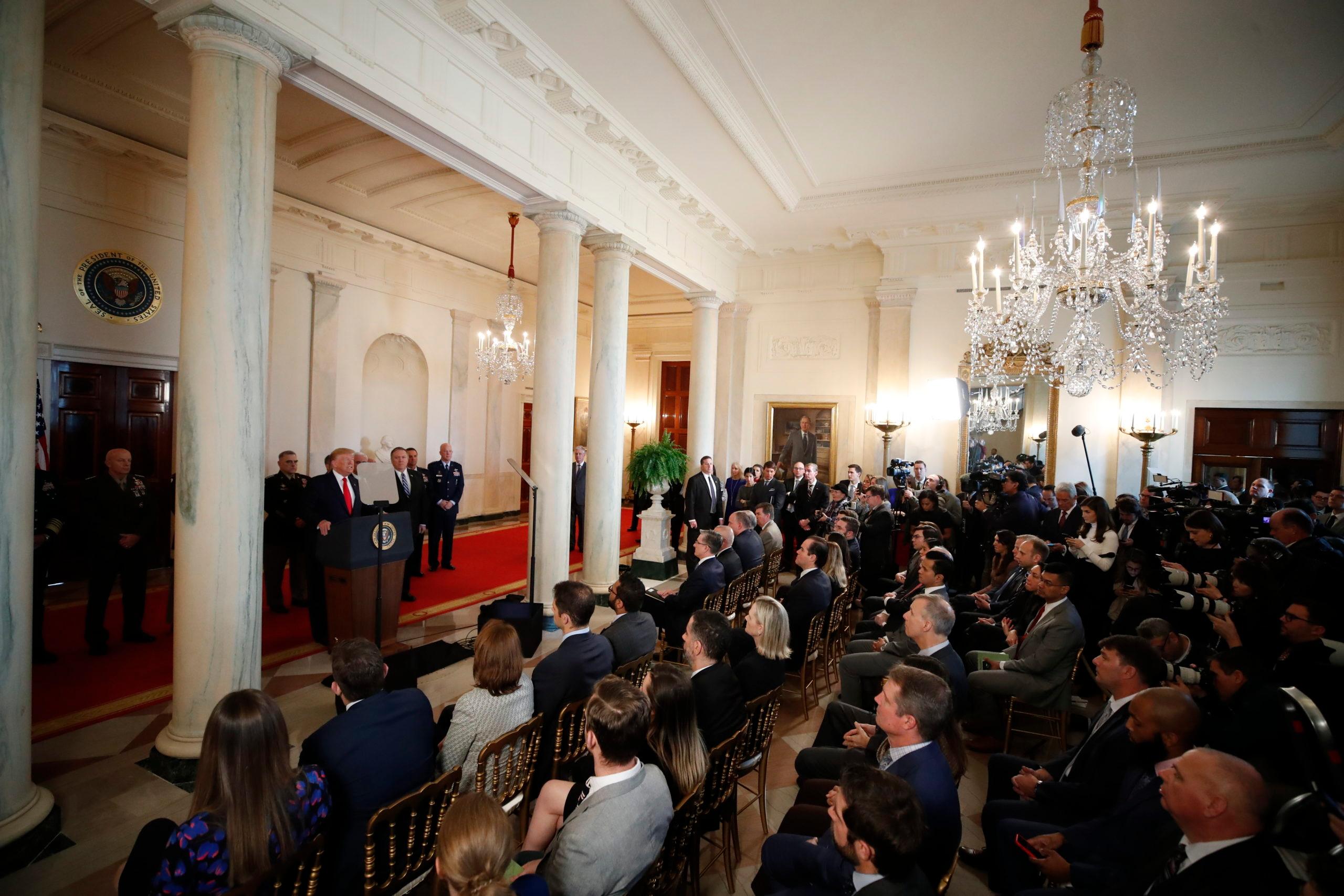
Iran and the U.S. are ratcheting down the rhetoric following a ballistic missile strike on Iraqi bases housing U.S. forces.
But a Trump administration briefing on Iran failed to defuse tensions on Capitol Hill over the events of the last week.
Like many issues on the Hill, the success of the briefing was split along party lines. And that concerns Democratic Sen. Michael Bennet.
“This is the absolute last issue that should be partisan,” Bennet said. “We need a strategy that is focused on keeping the American people safe and protecting our interests. And so far, we haven’t seen that.”
Many Republicans, including those in Colorado’s Congressional delegation, left the briefing satisfied with the answers they received from Secretary of State Mike Pompeo, Defense Secretary Mark Esper and other senior military and intelligence officials.
GOP Sen. Cory Gardner said he heard clear, compelling and unambiguous evidence of an imminent threat from Iranian General Qassem Soleimani.
“The action taken in Iraq saved American lives. That’s the bottom line,” Gardner said.
Fellow Republican Rep. Scott Tipton called the briefing “excellent.” He said it reaffirmed for him that “the president has acted legally and appropriately” to the situation.
Republican Rep. Doug Lamborn also agreed.
"(Soleimani was) planning and directing attacks against Americans throughout Iraq and was subsequently killed by the strike President Trump ordered," Lamborn said. "It is clear that Iran received the message and deterrence has been restored, at least for now.”
But not everyone gave the brief a glowing review. Fellow Republican Sen. Mike Lee of Utah described it as “the worst briefing I’ve had on a military issue in my nine years in the Senate.”
And many Democrats left the briefing saying it just brought up more questions, rather than providing answers.
Jason Crow was one of 35 Democratic representatives who signed a letter to President Trump clearly outlining questions they wanted the Iran brief to address, ranging from steps taken to ensure the safety of US personnel in the region to a strategy for de-escalation. Crow said he didn’t get the answers he sought.
“About two of the questions were partially answered, the other six were not," Crow said. "So we’re going to continue to go back to the Administration and to the cabinet officials and others and press them for answers that both Congress and the American people deserve."
Bennet added that the administration must further engage Congress and explain its larger strategy and how they plan to protect Americans overseas and at home. The presidential hopeful wasn’t satisfied by the President’s statement Wednesday, either.
“I’m hopeful that this is the end of it, but I don’t believe we’ve heard the last from Iran or its proxies,” Bennet said.
Democratic Rep. Ed Perlmutter said Congress should approve a new authorization for the use of military force if things heat up again with Iran.
Crow said that’s a conversation worth having.
“It’s always the right time in the United States Congress to debate and have a discussion about the use of military force, and when to send our young men and women into combat," Crow said.
Lamborn, however, said he doesn't want to see Congress tie the hands of the current or future commander-in-chief as they act to protect American citizens and interests.
For Sen. Gardner, these issues are all worth a discussion, but “what we cannot do is let any kind of a debate lessen the resolve of the American people or empower or enemies to believe the United States is divided.”
One thing most members of the delegation did agree on was the need for the administration to consult closely with Congress before any further action.
House Speaker Nancy Pelosi is expected to push that issue this week. She said on Wednesday that the House will vote on a war powers resolution to limit the Trump administration’s military actions against Iran.








